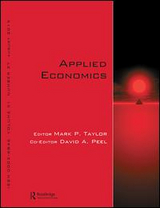
The informalization of the Egyptian economy (1998–2012): a driver of growing wage inequality
El-Haddad, Amirah / May Mokhtar GadallahExternal Publications (2021)
in: Applied Economics 53 (1), 115-144
DOI: https://doi.org/10.1080/00036846.2020.1796917
Volltext/Document
We run recentered influence function (RIF) regressions, using Firpo et al. (2007) distributional approach to identify each control variable’s contribution on the decomposition of wage changes. Using the Egyptian Labour Market Surveys 1998–2012 for waged men we find that wage changes between 1998 and 2012 mainly resulted in increased inequality. The richer percentiles have persistently enjoyed disproportionately larger positive changes in real hourly wages. Whilst increasing in all three wage gaps, inequality increased the most between the top and bottom deciles (90–10 gap), i.e. between the lowest and highest wage earners. This increase in inequality is primarily driven by the unexplained wage structure effect. The distinct labour market segments are foremost responsible for the increased inequality trend. Private sector informality is the largest contributor to increased inequality. The sector does not adhere to a minimum wage, and being unregulated it has responded dramatically to the severe competitive pressures caused by the departing middle classes of the public sector. It suppressed mid and low-end wages resulting in sharp wage gaps at the tails. Public sector wage setting dynamics and the direction of labour movements since liberalization cause the sector to contribute more to wage inequality than does its formal private counterpart.

